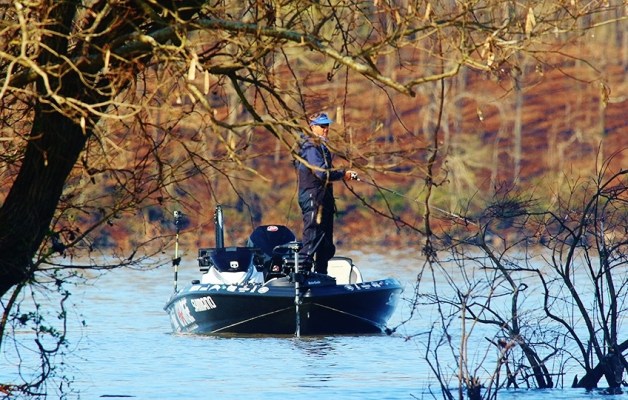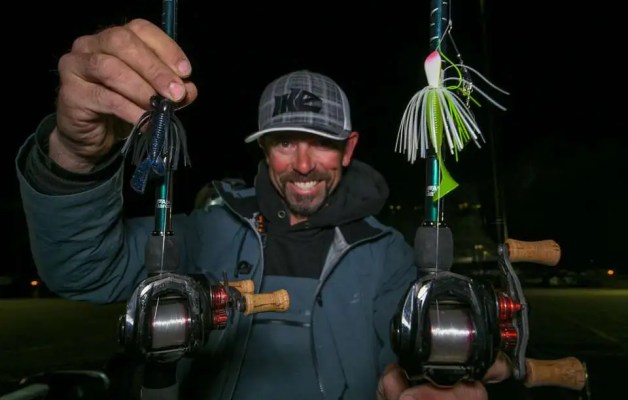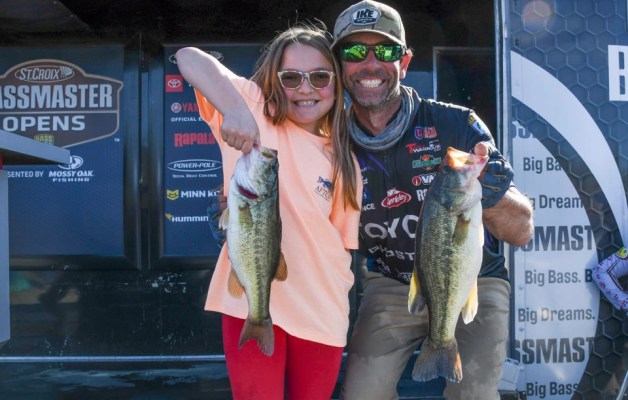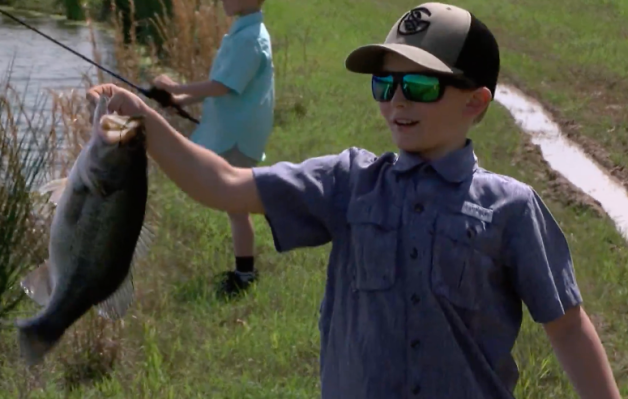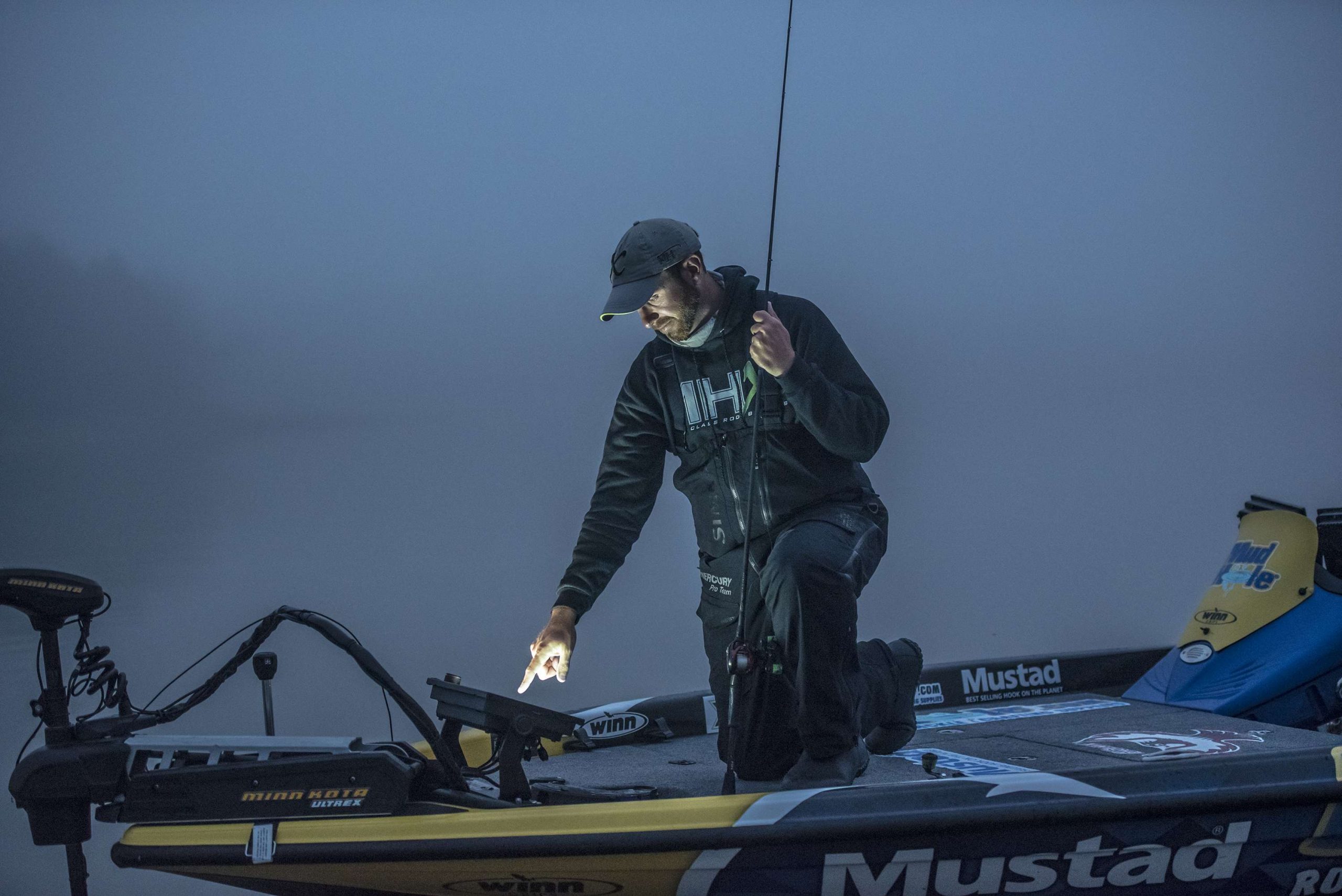
I know for people starting out learning to fish it can be quite easy to get confused reading some articles. A lot of time as professionals we take things for granted, using terms and commonly-accepted ideology we think everyone already knows. So in this article I will try to go over some basics of winter fishing in common terms. Let’s get started.
Bass are cold-blooded animals, which means the colder the water gets the more the fish’s core body temperature decreases. That also means the fish’s metabolism slows down. Metabolism is defined as the chemical processes in the fish that occur in order for it to maintain life: grow; heal; and make energy. Remember we as humans are warm-blooded so our body temperature stays a steady 98.6. A fish’s temperature drops with the water temp, which makes them sluggish the colder it gets. If you’re like me you’re pretty much ready to eat three meals a day and some snacks 365 days a year. It’s different with fish.
In warm water fish feed every day, throughout the day and into the night. In the winter they don’t feed nearly as often, one reason being they’re not moving around as much and not coming into contact with prey. Fish feed up heavily in the fall when the water is still warm and put on weight. Bait is plentiful then and instinctually they feel cold weather is coming, when they won’t be eating nearly as much.
Because of this reduction in the amount of feeding, we usually don’t catch as many fish in cold water. I have way more 20- and 30-fish days in the spring than I do in the winter. Keep in mind you’re not likely set any records for fish catches in cold water. Another reason we don’t catch as many fish is because they are less likely to strike out of surprise or instinct. We call those reaction bites. Fish bite for two basic reasons – either because they’re hungry and the bait looks like food, or because the bait has come into their territory and they instinctually attack it. Since they don’t have hands the way they attack is with their mouth. Reaction strikes are greatly reduced during the winter. In water mid-50 degrees and lower you really need to make the fish want to eat the bait in order to catch them.
So, as you can probably imagine, water temperature is 100 percent the most critical part of fishing in the winter. The colder the water the less-likely fish are to bite and the more a bait needs to slow down and get close to the fish for them to eat. From December to March (in Tennessee where I live) I really keep an eye on the water temp. During the rest of the year I don’t pay nearly as much attention to the temperature gauge as I do during the winter.
During winter I try and fish the warmest water I can find on a lake. The reason being those fish will be more active. If I can find a little warmer water, then the fish in that area will be much more ready to eat than in colder water. A couple degrees in water temperature can make all the difference.
Keep in mind too that no matter how cold the water gets if it warms up any at all the fish will get more active. People don’t realize how sluggish fish get. When it gets really cold they don’t want to expend much energy, which means they won’t chase much, or risk moving very far to catch something. You often hear the term “strike zone”. That’s the area around a fish where it will move in order to eat something. A wintertime strike zone can be just a few feet. Because of that it’s best to make repeated casts to a likely area, and vary the retrieve a foot or two at a time.
I like to use slower-moving baits in cold water. Baits that can stay in one place and be worked slowly like a jig or something that can suspend in the same place (hopefully in front of their face) like a jerkbait with Mustad KVD trebles, are better in the winter. I like to use lighter line in cold water too. Lighter line allows the bait to move more authentically, meaning it looks much more like real food to fish. Eight- or 10-pound Vicious fluorocarbon on a jerkbait during the winter is preferable to 12-pound line in warmer months.
Objects in the water, especially rocks, retain heat so on sunny days the shallow water near rocks on the bank will often be warmer. Turtles and snakes are cold-blooded creatures as well and that’s the reason you see them near rocks. Use quality line when fishing near rocks and check it frequently for nicks or abrasions. Do that by either running it between your fingers or along your tongue. If you feel anything on the line, retie.
Keep in mind too that fish don’t bite nearly as hard in cold water. You will feel them kind of “load up” on the bait instead of those bone-jarring strikes in warmer weather. They fish are just picking up the bait and doing as little as possible to catch it. Those “light bites” increase the importance of having a sensitive rod.
I build all my own rods and will tell you that MHX Rods from Mud Hole Custom Tackle help me catch more fish throughout the year, and especially in cold water. The better the quality of graphite the rod is made of the more sensitive it is. MHX Rods are much more affordable and the quality is better. For extremely light bites I recommend the NEPS series of blanks. They’re the most-sensitive I have fished with. Winn Grips on them are key as well as the Winn Grips sleeves on my reels to keep my hand from slipping when wearing gloves. Simply pick up a rod with a Winn on it and you’ll immediately know what I mean.
So that’s wintertime fishing 101 for you. If you have any other questions search the Bassmaster website or hit me up on Facebook.


